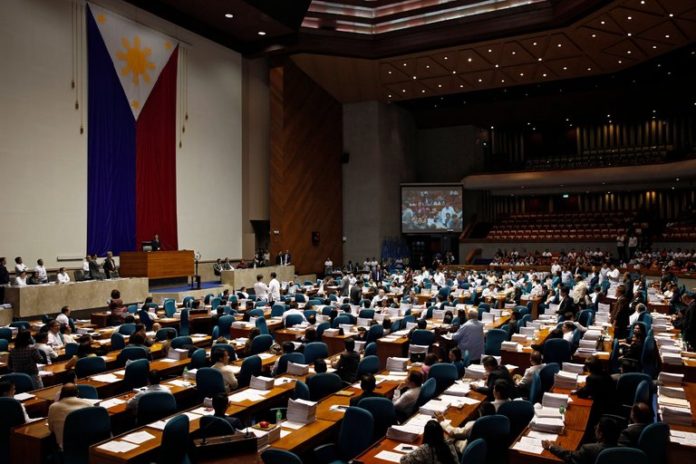Philippine President Rodrigo Duterte’s crusade to resuscitate the death penalty for drug-related crimes has been given a boost. A majority of politicians in the lower house of Congress passed a second reading of the bill on Wednesday night, eliminating one the toughest challenges in the cheerleader’s plans to have the death penalty legal by May. Next week there is still a third and final reading; although with no more debates, both sides agree passage is a formality. The Senate which majority are Duterte’s allies will then pass a complementary bill.
“We have hurdled the most difficult part,” Reynaldo Umali, a congressman, and supporter of the bill told AFP news agency.
The death penalty bill, together with a proposed measure to punish children as young as nine years as adult criminals, are fundamental blocks of Duterte’s contentious war on drugs that has claimed more than 7,000 lives thus far.
Critics have denounced the plan as “inhumane.” A human rights guardian has pointed an accusing finger to the Philippines police claiming they are giving grounds for their illegal killings in the government’s fight against drugs by generating false evidence. They accused President Rodrigo Duterte of being eventually responsible for the murders.
The attempt by the Philippines government to bring back the death penalty irritated the opposition, after being revoked 11 years ago. They had concerns that it would lead to the murder of many innocent people from a spurious justice system.
On Thursday the Human Rights Watch claimed in their report that the Philippines President and other senior government officials are initiating and exciting the murdering of drug suspects and they could be charged with crimes against humanity. Extrajudicial killings of suspected drug criminals have been carried out by the police, then spuriously claiming drugs on the bodies, spent bullets, planted guns or self-defense.
“Our investigations into the Philippine drug war found that police routinely kill drug suspects in cold blood and then cover up their crime by planting drugs at the scene,” said the emergencies director at Human Rights Watch and the report’s author, Peter Bouckaert. “President Duterte’s role in these killings makes him ultimately responsible for the deaths of thousands.”
“The decision is inhumane, shameful and blatantly disrespectful,” said the executive secretary for public affairs at the Catholics Bishops’ Conference of the Philippines, Father Jerome Secillano, in a statement. “Let me reiterate this, criminals should be punished and victims should be aided, but the punishment should not be death. Due to our flawed and dysfunctional criminal justice system, there is a great chance that innocent people may become victims of wrongful convictions.”
11 years ago, The Catholic church, which has a following of 80% Filipinos, abolished the death penalty by working and consulting with the opposition. The opposition lawmakers and Father Jerome Secillano also condemned the methods used by the government to ensure the safe passage of the bill. One of them was the threat by the speaker of the house to strip the lawmakers who voted against the bill of committee leadership positions.




